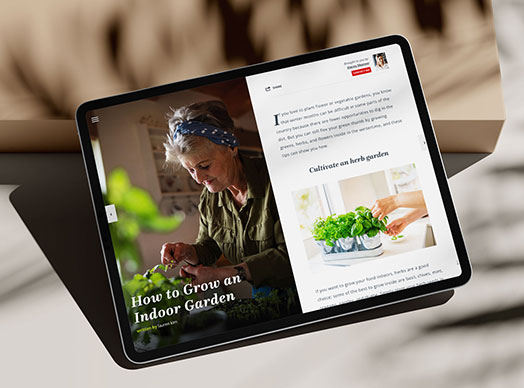While not as well-off as their parents’ generation, millennials have emerged as the driving force in the U.S. housing market
Millennials, or Gen Y, are generally defined as those born between 1981 and 1996. In 2021, their ages range from 25-40 years old. At last count, there are 72.1 million Americans in this category, and millennials now make up the largest living generation in the nation. In 2020, millennial buying power was estimated at $1.4 trillion annually, and this generation is expected to inherit about $68 trillion as Baby Boomers transfer their wealth in the coming years.
The business world is obsessed with them—and real estate agents should be too.
As you already know, 25-40 years old is the prime age range for many to buy their first home. From a financial perspective, despite being bookended by the Great Recession and the economic turmoil of the COVID-19 pandemic, millennial home buyers are the perfect prospect. While the numbers vary depending on who you ask (when have numbers not varied?), here’s a general snapshot of their financial position:
- During the lockdown, 65% of millennials reported improvements to their personal finances. Others have been able to pay down their student debt.
- On average, their annual salary is slightly over $41K.
- Their spending power is expected to increase as their total income reaches an estimated $8.3 trillion by 2025.
- When it comes to paying their bills, millennials are financially savvy—prioritizing paying off debt like student loans—and don’t carry debt on their credit cards.
- In 2020, when compared to all other generations, millennial home buyers were the largest group.
It’s obvious that, for real estate professionals, the rewards of attracting this demographic are tremendous.
First, it’s true that, while millennials have waited longer than their parents to purchase their first homes and have postponed marriage longer, they are looking to buy now, despite the insanely competitive sellers’ market. They are willing to do what it takes to find their first home, including buying smaller homes and accepting gifts from family to help with the down payment. A large majority, 71%, are willing to buy a fixer-upper. Nearly 80% would be willing to buy a home without seeing it first.
Millennials are driven to buy homes for many of the same reasons that previous generations cite—they want to build equity, and they want to start families. But the pandemic has also created a desire for more space, and with many employers incorporating some version of a work-from-home policy, there is more interest in moving out of cities.
And while we frequently hear about the skewed values of the millennial generation, according to Millennial Marketing, they aren’t that different from their grandparents, except their commitment to these same values may be deeper.
Even so, there are differences that make millennials their own unique cohort. For this reason, they may not follow the same playbook their parents did.
Marketing to millennials
When courting tech-savvy millennials, your online presence is crucial. Agents would be well-advised to focus on these key areas:
Responsive website: More internet searches take place on mobile devices than desktops, so make sure your site has a responsive design for easy viewing and higher search rankings. This tool will tell you if your website is mobile friendly. If it isn’t, here are some of the top-rated website builders for responsive design.
Personalized content: Maintain an attractive, easy-to-navigate website that highlights your accomplishments and the specific neighborhoods you serve. In your bio, include details about who you are as a person: hobbies, roots in the community, support of local organizations, and so on. Video introductions are a great way to help millennial home-buyers get to know you. Clients need to know, like, and trust their agents, and sharing personalize content helps promote that connection.
Millennial-centric listings: Highlight property details that appeal to millennials, such as energy-efficient appliances, open floor plans, a home office, large kitchens, relaxing outdoor space, access to public transportation, and a bike-friendly neighborhood.
Engaging social media: Give your social media a design aesthetic that matches your website and brand, with website links and contact info readily visible. And don’t just post about real estate—lifestyle-focused content like recipes, crafts, tips for homeowners, and ideas for green living will drive post-sharing and engagement among millennials.
Local insight: Don’t just sell homes—sell the neighborhoods. Start a blog on your website to highlight local amenities: parks, farmers’ markets, restaurants, schools, and community events. This can position you as a market expert and help boost your local search rankings as readers link to your content.
Be part of the research process: Online research is second nature to millennials, so ensure your brand is visible every step of the way. Keep your contact info and property listings up to date on Zillow, Trulia, Realtor.com, Yelp, and Angi’s List.
Let previous clients do the selling: Did you know that over 90% of millennials trust online reviews as much as family and friends? Encourage past clients to review you on sites like Zillow and Yelp. And don’t forget about Google reviews! Your website should feature the very best testimonials—the ones that describe specific ways in which you made a difference for your clients.
Working with millennials
You’ll always want to tailor the house-hunting process to your clients’ specific needs, expectations, and preferences. For example, you wouldn’t drive a client willing to spend $4M on a house to a showing in your Volkswagon Beetle. As a group, millennials have their own set of needs, expectations, and preferences too:
Communication: Many millennials are not phone people. They may prefer text messages, emails, or alternatives like Skype, FaceTime, and Google Hangouts. Ask your clients the best way to reach them, make a note of their preferences in your database, and get comfortable with a variety of communication options.
Finances: Millennials are entering a very different market than what existed before the recession and now after the pandemic. Help them understand today’s real estate landscape, and get a sense of their financial parameters, risk tolerance, and wants versus needs.
Location and home size: Before the pandemic, a large home was often less important than a walkable community with plenty of amenities indicative of urban neighborhoods. But now, downsizing may not be the ideal option for millennials who have parents or other family members living with them, who see themselves as the heads of the household and the de facto gathering place for holidays, or who enjoy entertaining.
Staying in touch with millennials
Closing a deal, whether it’s with a member of Gen Y or any other generation, should never spell the end of a professional relationship. Continue to nurture the relationships you build with your clients, and take steps to stay top of mind to garner valuable referrals. Encourage them to tell their family members, friends, and colleagues about you. Ask them to introduce you to people they know who may be thinking of buying or selling a home.
Use social media and periodic check-ins to stay connected to your millennial clients. Use any of our products, like personally branded, automated emails and digital or print magazines to stay top of mind. Your clients can read these engaging publications and share them (and your branding!) with their friends and connections.
Preferences, the economy, and technologies may change from one generation to the next, but lasting relationships will always remain valuable.
























